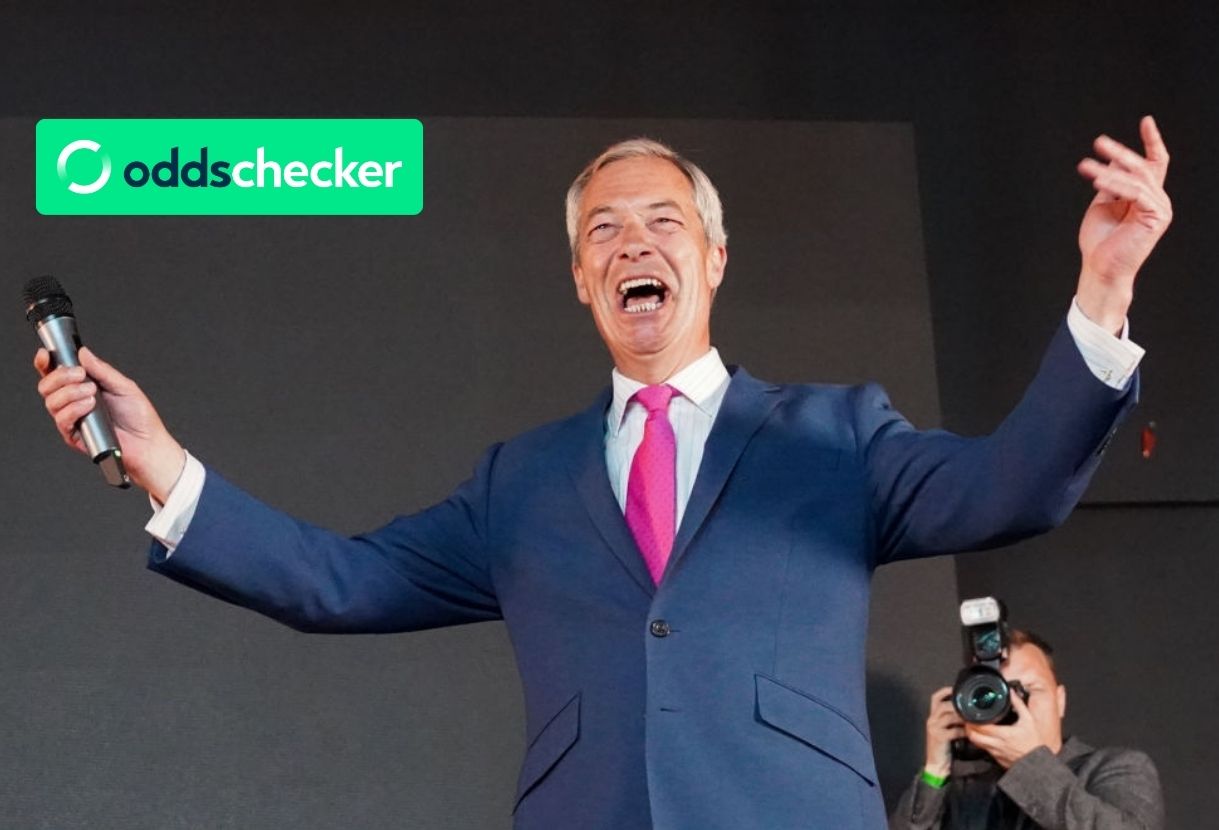
Nigel Farage is given a strong chance of being the UK's next Prime Minister after Keir Starmer.
Though the next general election in the United Kingdom is still a long way away (expected to be 2029), there is no doubt that Reform UK leader Nigel Farage already has his sights set on it.
In fact, the former UKIP leader said himself: "We're coming for Labour, be in no doubt about that". When commenting on his chances in the general election just gone, he said: "This is step one. Our real ambition is the 2029 general election. But this is our first big push."
The betting markets as we approach Christmas seem to suggest that this first big push might well have had a successful impact on their chances in 2029.
Nigel Farage is now given as much as a 30% chance of becoming the next PM according to the odds offered by William Hill on the 'Prime Minister after Next General Election Betting Odds' market.
This has increased from a 20% implied chance just under three weeks ago as Reform UK's popularity continues to grow amid a lack of support for the current Labour party.
Farage is given an equal 28% chance with new Tory leader Kemi Badenoch at odds of 5/2 on Betfred, while Betfair make it more likely that Farage succeeds Starmer than Badenoch (13/5 vs 3/1).
William Hill Welcome Offer: New customers can unlock a massive £60 in free bets simply by signing up, opting in and placing a £10 bet.
William Hill
- Solid in-play betting service
- Cash-in option to help increase profitability
- Excellent reputation within the UK betting-industry
Next Prime Minister Odds
| Next PM | Best Odds | Shortest Odds |
|---|---|---|
| Kemi Badenoch | 5/2 | 2/1 |
| Nigel Farage | 3/1 | 9/4 |
| Wes Streeting | 16/1 | 10/1 |
| Angela Rayner | 16/1 | 10/1 |
| Boris Johnson | 16/1 | 12/1 |
Keir Starmer is 4/6 to be re-elected (Ladbrokes) & 5/4 not to be (Starsports) (44% chance he isn't Prime Minister after next election).
Nigel Farage Odds to be Prime Minister
Nigel Farage has a 30% chance of becoming the next PM at odds of 9/4 with William Hill.
Just under three weeks ago the 60-year-old MP was given a 4/1 chance (20% implied probability).
A recent survey revealed that over a quarter (27%) of Londoners who supported Labour in the 2024 general election now regret their choice. Furthermore, 19% of Labour voters indicated they would switch their allegiance to another party if a general election were held today.
It seems that Reform are expected to absorb a lot of those lost supporters as they did in the 2024 general election in which they took a 14.3% share of votes amid frustration with the handling of issues such as immigration, economic stagnation and public service inefficiencies by the major parties.
Ladbrokes
- Wide range of markets available such as sports, virtuals, politics etc.
- Flush and fast app available on both iOS and Android
- Licensed by the UK Gambling Commission
Next UK General Election Odds
Below is a look at the odds for which party will win the most seats in the next general election.
| Most Seats | Odds | Implied Probability |
|---|---|---|
| Conservatives | 6/4 | 40% |
| Labour | 7/4 | 36% |
| Reform | 7/2 | 32% |
The conservatives are considered likelier to win more more seats in the next general election than Labour, who have had a turbulent start to their time in office.
YouGov figures suggest that after just three months in power, six in 10 Britons (59%) disapprove of the government’s record so far, with only one in six approving (18%).
They have been highly criticised with many voters feel disillusioned due to perceived broken promises and a lack of substantial change, their budget decision such as cuts to winter fuel payments for pensioners has also contributed to their unpopularity.
Meanwhile, the Conservatives are enjoying a bounce in popularity following the appointment of Kemi Badenoch as their new leader who is set to take the party in a new direction following their landslide defeat in the election.
Reform Election Odds
Reform are as short as 9/4 to win most seats and a best price of 7/2 (QuinnBet) which is in from 11/2 at the start of November.
Farage's party actually picked up a large share of the votes in the last election - receiving a 14.3% share compared to the Conservatives' 23.7% and Labour's 33.7%.
However, they only managed to secure five seats in the House of Commons with voters dispersed across the country rather than in concentrated areas where their votes could count.















